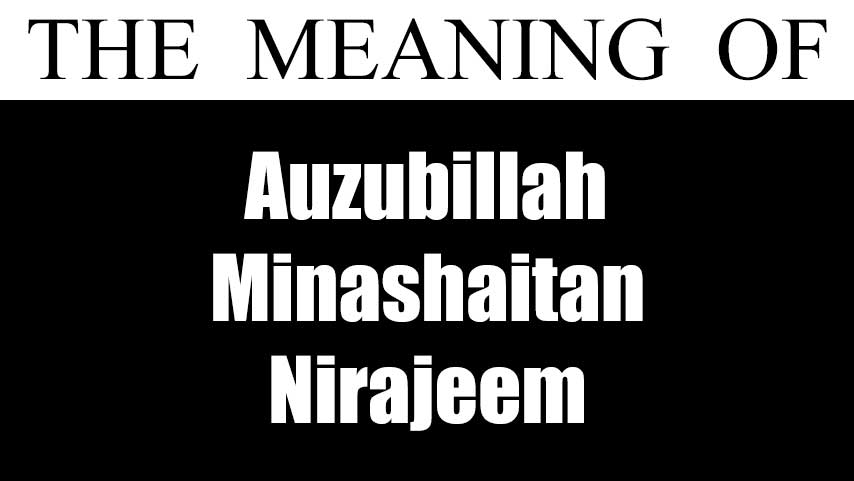Audhubillah Bedeutung

In the rich tapestry of Islamic expressions, Audhubillah holds a significant place, embodying a profound concept that resonates through the hearts and minds of Muslims around the world. This sacred phrase is not merely a linguistic construct but encapsulates deep spiritual meanings that guide believers in their daily lives. In this article, we delve into the bedeutung, or meaning, of Audhubillah, exploring its linguistic roots, religious context, and practical applications.
Table of Contents
ToggleLinguistic Roots:
To comprehend the bedeutung of Audhubillah, it is essential to explore its linguistic roots in the Arabic language. Audhubillah is derived from the root word “A’udhu,” which means seeking refuge or seeking protection. In a broader context, this term signifies taking refuge in Allah, the Most Merciful, the Most Compassionate. The word “Billah” is a combination of “Bi,” meaning with, and “Allah,” referring to God. Therefore, Audhubillah can be translated as “I seek refuge with Allah.”
Religious Context:
Audhubillah is prominently featured in Islamic practices, particularly in the recitation of various verses from the Quran and supplications. It is often recited before undertaking any significant task, embarking on a journey, or facing challenges. This practice is deeply rooted in the teachings of Islam and serves as a reminder of the believer’s reliance on Allah’s protection and guidance.
The Quran itself emphasizes the importance of seeking refuge in Allah. In Surah Al-Falaq (Chapter 113) and Surah An-Nas (Chapter 114), believers are urged to seek protection from the evil of external forces and the whispers of Satan. These chapters are recited as part of the daily prayers and are a testament to the spiritual significance of seeking refuge in Allah.
Practical Applications:
The bedeutung of Audhubillah extends beyond mere verbal expression; it is a practical manifestation of a believer’s trust in Allah’s sovereignty. Muslims incorporate this phrase into their daily lives, using it as a shield against negative influences and seeking Allah’s protection from harm.
- Before Commencing Daily Tasks: Muslims begin many of their daily activities by reciting Audhubillah. Whether it’s starting a journey, entering their homes, or embarking on a new endeavor, the invocation of Audhubillah becomes a ritualistic practice, reminding believers of their constant dependence on Allah’s guidance.
- In Times of Distress: When facing challenges or hardships, Muslims turn to Audhubillah for solace and protection. The acknowledgment of vulnerability and the act of seeking refuge in Allah instill a sense of calm and assurance, reinforcing the belief that ultimate control rests in the hands of the Almighty.
- During Spiritual Practices: Audhubillah is an integral part of daily prayers and other spiritual rituals in Islam. By uttering these words, believers express humility and submission before Allah, recognizing their need for His mercy and protection.
- Protection from Evil Influences: The world is fraught with negative influences and temptations. Muslims employ Audhubillah as a shield against the potential harm that may arise from external forces or the whispers of Shaytan (Satan). It serves as a constant reminder to stay vigilant and seek Allah’s protection.
Conclusion:
The bedeutung of Audhubillah is deeply ingrained in the fabric of Islamic faith, offering believers a powerful tool to navigate the complexities of life. This phrase transcends linguistic boundaries, resonating with Muslims worldwide as a source of strength, protection, and spiritual connection. As believers utter Audhubillah, they affirm their trust in Allah’s mercy and acknowledge His role as the ultimate guardian. In embracing the profound meaning of Audhubillah, Muslims find solace, guidance, and a renewed sense of purpose in their journey towards spiritual fulfillment.





